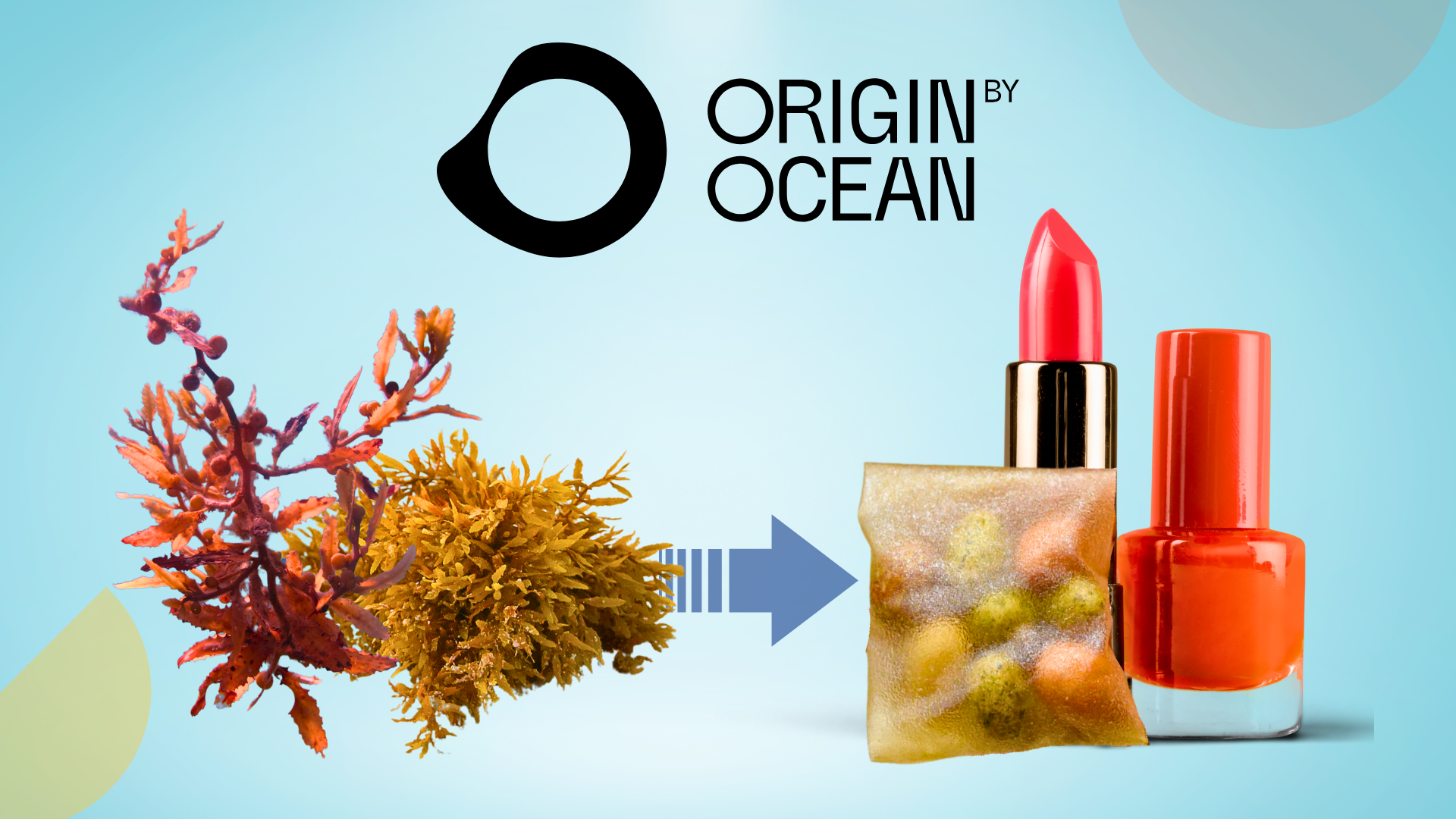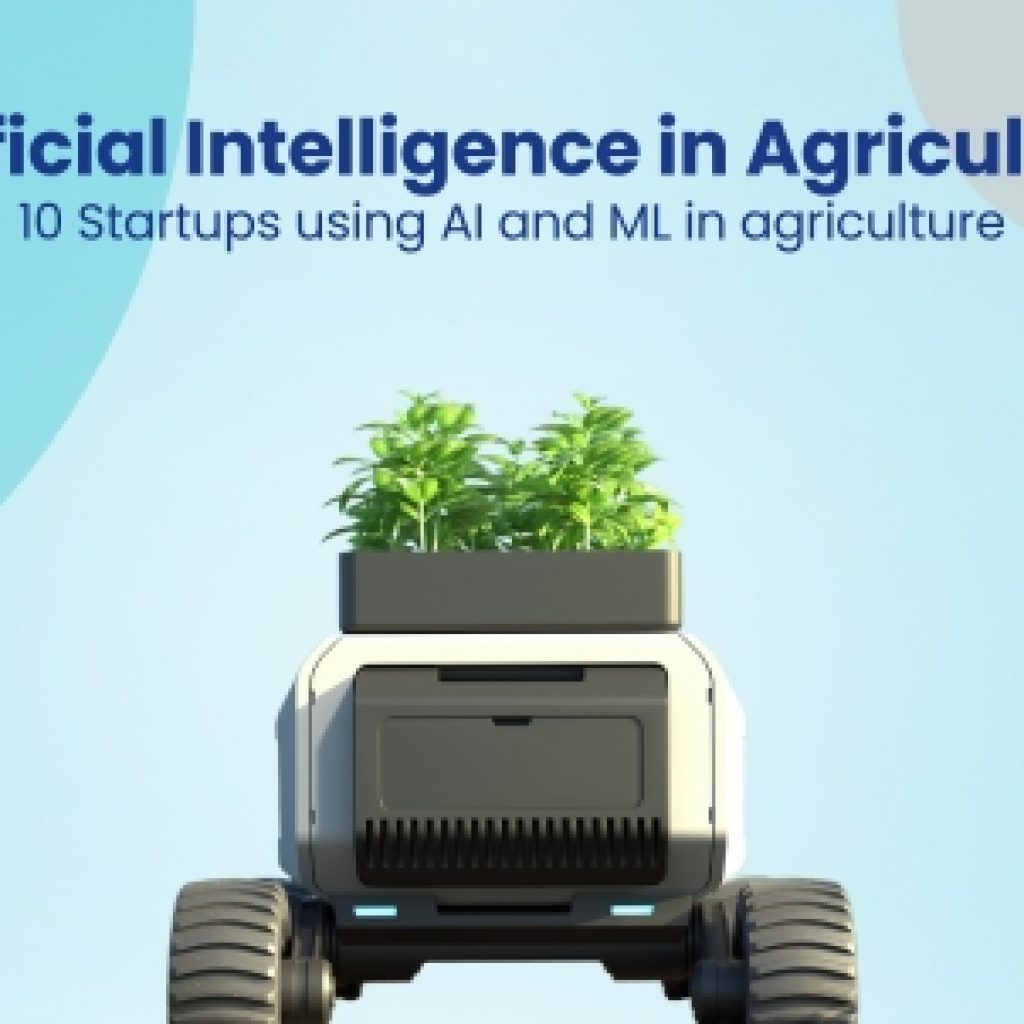Human-driven nutrient pollution in coastal waters is leading to an overgrowth of seaweed worldwide. This “ocean overgrowth” chokes biodiversity, damages coral reefs, and creates environmental and economic headaches for coastal communities. These are especially problematic in regions like the Caribbean, where an estimated 30 to 50 million tons of sargassum seaweed wash ashore annually. These disrupt marine ecosystems and emit an unpleasant rotten odor. Yet, despite the scale of this issue, most of the biomass is discarded or left to rot.
Origin by Ocean is addressing this overlooked problem through a biorefinery that transforms such harmful seaweed into biodegradable materials. These materials are sold to industries like cosmetics, textiles, and packaging, where they help replace petroleum-based components.
To better understand how their process works, we spoke to Mari Granström, CEO of Origin by Ocean. This article contains notable highlights from our entire conversation.
This interview is part of our exclusive Scouted By GreyB series. Here, we speak with the founders of innovative startups to understand how their solutions address critical industry challenges and help ensure compliance with industry and government regulations. (Know more about startups scouted by GreyB!)
“We only harvest invasive species that harm ocean biodiversity—so for us, more feedstock means a cleaner ocean.”
– Mari Granström

Mari Granström is the founder and CEO of Origin by Ocean, a Finnish startup transforming harmful seaweed into bio-based ingredients for cosmetics, food, textiles, and packaging. A chemist by training and an ocean advocate, Mari was inspired to act after witnessing firsthand the degradation of marine ecosystems. Her love for the sea and background in science led her to create a biorefinery platform that removes invasive seaweed from ecosystems and upcycles it into sustainable products.
How this Finnish Startup is Cleaning Oceans and Creating Green Chemicals from Seaweed
Origin by Ocean is a Finnish startup that converts invasive seaweed into sustainable ingredients for various applications, including cosmetics and packaging. The company has developed a biorefinery process that eliminates the use of harmful chemicals and recycles solvents, resulting in a more environmentally friendly and efficient method for processing marine biomass. Their ingredients can serve as alternatives to synthetic thickeners, actives, and polymers across different industries. With the establishment of its first commercial facility approaching, the company aims to expand its influence while continuing its research and development efforts.
What is Origin by Ocean doing, and how is it creating impact?
Mari: We use invasive seaweed species as feedstock and convert them into bio-based chemicals through a proprietary refinery process. These harmful seaweeds bloom due to nutrient pollution, and we saw an opportunity to turn that environmental problem into a scalable solution. Our biochemicals are utilized across various industries, including cosmetics, textiles, food, and packaging.
What inspired you to work with harmful seaweed?
Mari: I’ve always been a passionate ocean lover and an active scuba diver. Over 15 years ago, while diving in Asia, I began to notice beautiful coral reefs being replaced by overwhelming seaweed blooms. As a chemist, I began to wonder if we could utilize this unwanted biomass for a beneficial purpose. That led me to discover the rich biomolecules inside these species and eventually design a biorefinery that could extract them sustainably.
What makes your biorefinery process different from others?
Mari: Many companies use biomass but don’t look closely at how they process it. We adhere to green chemistry principles, utilizing aqueous methods and recycling our solvents whenever possible. Our carbon footprint is significantly lower because we focus on efficiency and use 100% of the biomass. Even the residue is sold for animal feed or fertilizer. Most importantly, we’re transparent—real biorefining means thinking about the entire process, not just the feedstock.
Are there any carbon or life cycle assessment considerations you’re actively working on?
Mari: Yes, life cycle assessment (LCA) is a central component of our work. We haven’t published an LCA yet because we’re still building our first commercial facility. However, we’ve already mapped each unit operation and identified areas for improvement. What we can already show our clients is the clear LCA benefit of replacing oil-based ingredients with our seaweed-based ones.
What kinds of technical or adoption challenges have you faced?
Mari: Every ingredient change requires work—there’s no such thing as a seamless switch, whether it’s bio-based or petroleum-based. Our clients must be willing to experiment and improve. Sometimes they want to fix an existing technical issue or create a new product line that’s more sustainable. We always emphasize value, not just price per kilo, but the broader value we bring to their product.
Do regulatory or sustainability goals influence your clients’ decisions?
Mari: Absolutely. Many of our customers are driven by the need to improve their LCA or meet regulations, such as Europe’s PPWR. Interestingly, we’ve found that many companies aren’t thinking about end-of-life. That’s where biogenic carbon offers a significant advantage—it circulates back to nature, which shifts how they view their products.
Can you share any specific technical benefits seen in cosmetics?
Mari: One major use case is replacing synthetic thickeners like polyacrylates—products like Carbomer. Our seaweed-derived alginates perform well and pair nicely with other bio-based polymers, improving texture and skin feel. We also offer active ingredients, such as fucoidan, that can replace oil-based components in skincare, providing both sustainability and performance.
The seaweed packaging market is becoming increasingly crowded. How do you stand out?
Mari: First, we don’t produce packaging—we supply ingredients to packaging companies. Seaweed is just one part of the blend, and making sustainable packaging is far more complex than people think. We emphasize transparency. Our clients need to understand precisely what’s in their material and how it breaks down. Many so-called biodegradable products don’t work with current recycling systems.
Are there any feedstock challenges you foresee?
Mari: Not for us. We use invasive seaweeds, such as sargassum, which bloom excessively, amounting to up to 50 million tons annually in the Caribbean alone. These species don’t belong where they’re growing, so removing them helps the ocean. We don’t use wild kelp, which is a beneficial native species and should be protected.
What’s next in your R&D and commercial plans?
Mari: We’re building our first commercial plant and launching two products initially. But our technology can produce five core ingredients, so we’ll continue R&D to bring those to market as well. Our long-term goal is to scale this model globally, always using ocean overgrowth as the feedstock.
As a first-time founder with a scientific background, how do you stay motivated?
Mari: I tend to see possibilities everywhere—I call it a problem of over-positivity! Of course, there are challenging days, especially when it comes to financing. But I wouldn’t trade this journey for anything. The impact we’re making, the fantastic team around me, and the support we’ve received keep me going. Even when it’s tough, I know it’s worth it.
Meet our Interviewer – Shabaz Khan, Marketing Manager at GreyB
Shabaz Khan, Marketing Manager
Want to find other scalable startups innovating in sustainable ingredients? Please fill out the form below to contact our experts.
Get in touch
Please share your query below




